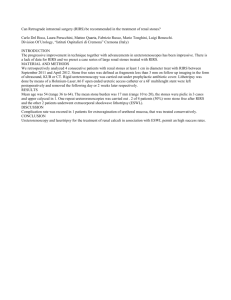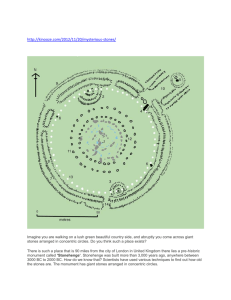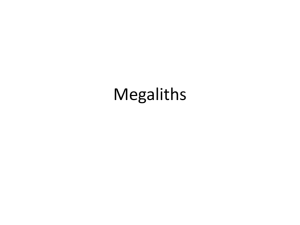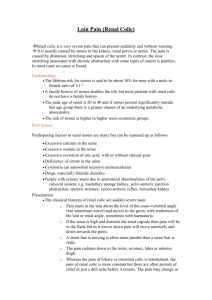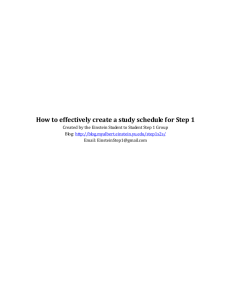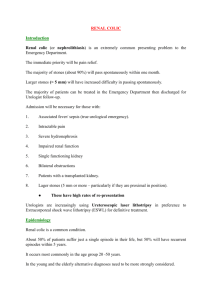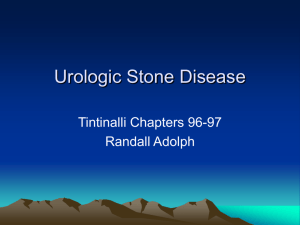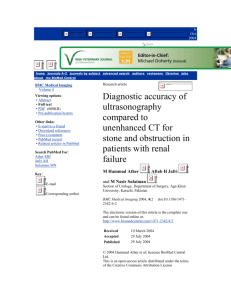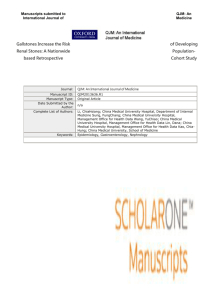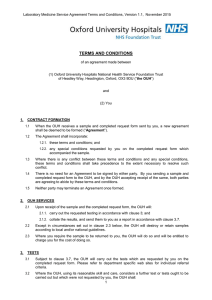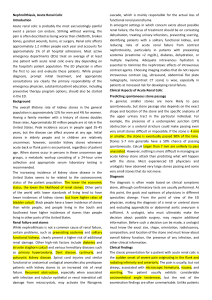Oxfordshire Clinical Commissioning Group PATHOLOGY
advertisement
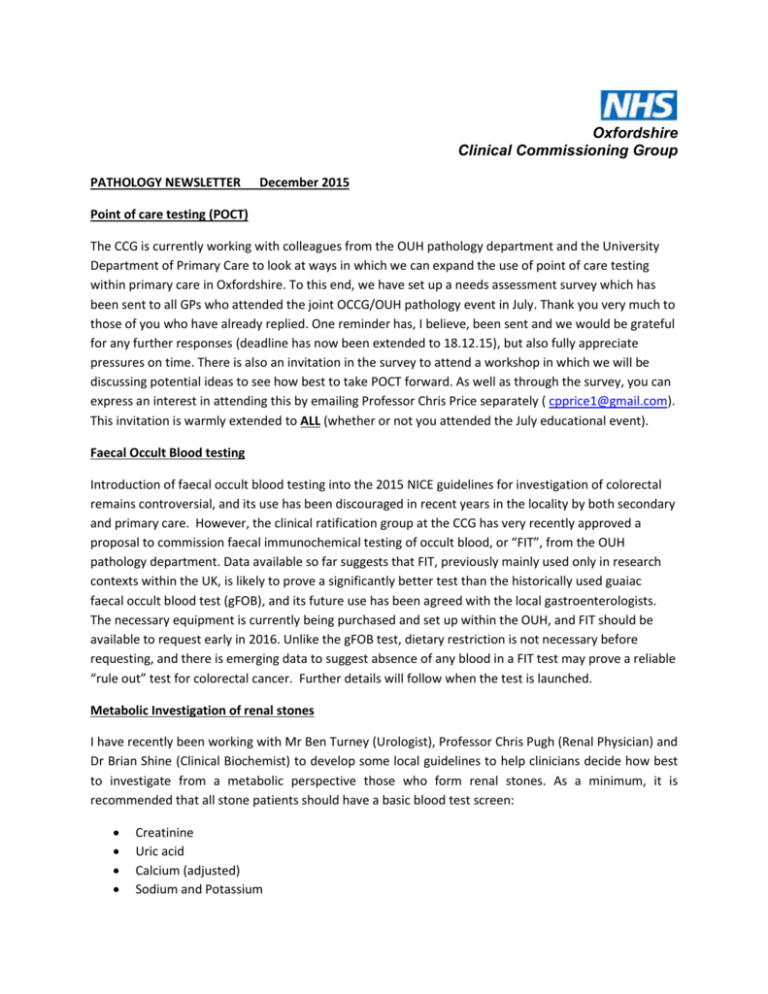
Oxfordshire Clinical Commissioning Group PATHOLOGY NEWSLETTER December 2015 Point of care testing (POCT) The CCG is currently working with colleagues from the OUH pathology department and the University Department of Primary Care to look at ways in which we can expand the use of point of care testing within primary care in Oxfordshire. To this end, we have set up a needs assessment survey which has been sent to all GPs who attended the joint OCCG/OUH pathology event in July. Thank you very much to those of you who have already replied. One reminder has, I believe, been sent and we would be grateful for any further responses (deadline has now been extended to 18.12.15), but also fully appreciate pressures on time. There is also an invitation in the survey to attend a workshop in which we will be discussing potential ideas to see how best to take POCT forward. As well as through the survey, you can express an interest in attending this by emailing Professor Chris Price separately ( cpprice1@gmail.com). This invitation is warmly extended to ALL (whether or not you attended the July educational event). Faecal Occult Blood testing Introduction of faecal occult blood testing into the 2015 NICE guidelines for investigation of colorectal remains controversial, and its use has been discouraged in recent years in the locality by both secondary and primary care. However, the clinical ratification group at the CCG has very recently approved a proposal to commission faecal immunochemical testing of occult blood, or “FIT”, from the OUH pathology department. Data available so far suggests that FIT, previously mainly used only in research contexts within the UK, is likely to prove a significantly better test than the historically used guaiac faecal occult blood test (gFOB), and its future use has been agreed with the local gastroenterologists. The necessary equipment is currently being purchased and set up within the OUH, and FIT should be available to request early in 2016. Unlike the gFOB test, dietary restriction is not necessary before requesting, and there is emerging data to suggest absence of any blood in a FIT test may prove a reliable “rule out” test for colorectal cancer. Further details will follow when the test is launched. Metabolic Investigation of renal stones I have recently been working with Mr Ben Turney (Urologist), Professor Chris Pugh (Renal Physician) and Dr Brian Shine (Clinical Biochemist) to develop some local guidelines to help clinicians decide how best to investigate from a metabolic perspective those who form renal stones. As a minimum, it is recommended that all stone patients should have a basic blood test screen: Creatinine Uric acid Calcium (adjusted) Sodium and Potassium As a guide, it is suggested further investigation by a way of a full metabolic screen is considered in the following circumstances Greater than 2 separate episodes of problems associated with renal stones. Young age at presentation (<21) Clear family history of renal stones Those “at risk” if further problems with renal stones e.g. single functioning kidney, those with CKD, and those prone to urosepsis in the context of stones. A full metabolic screen requires additional blood tests (PTH if not already done, vitamin D, bicarbonate, magnesium, alkaline phosphate) in addition to the baseline blood tests outlined above. The patient also needs a 24 hour urine analysis which requires 2 x 24 hour collections; one collection in an acidified container is analysed for creatinine, calcium, oxalate and citrate, and one in a plain container is analysed for total volume in 24 hours, creatinine, pH, calcium, magnesium, phosphate, uric acid, sodium, potassium and urea. Direct stone analysis is also useful (at any stage). A more detailed document explaining the above will be available with guidelines on the wider clinical management of renal stones following review by the clinical ratification group in the new year. A useful dietary leaflet for stone formers can be found on the Oxford Stone Group Website in the patient information section: www.ndm.ox.ac.uk/osg . This includes an explanation that some evidence points towards restricting dietary calcium being harmful in terms of promoting stone formation. Lab reporting of blood glucose and HbA1c Historically the biochemistry lab has not quoted a reference range for blood glucose because the normal range depends on the context of the blood test (specifically with respect to whether fasting or not). This resulted in some very high levels not being flagged up as abnormal, so during the course of this year the lab has changed its system to flag up glucose levels above 10mmols/l as “abnormal”. Following further feedback from general practice, this threshold is now being changed to 7mmol/l. I appreciate that this will now be flagging up some levels as abnormal when in fact they may still be normal if the patient is non-fasting. However, the rationale is that at least the result, if highlighted as “abnormal”, will prompt a consideration of what it means in the context of the circumstances of it being taken, which may not necessarily have been the case before. HbAIcs have continued to be reported in both the “old” units of % points, and the newer units of mmol/mol. Following feedback from some GPs that this then requires a double filing of results, the OUH lab is proposing to stop reporting results as a % points (which had, in fact, always been the long term intention when the reporting of mmol/mol was first introduced). I appreciate that many, including myself, remain stuck in still thinking in terms of % points, so will need to adapt. Please feel free to let me know if you strongly oppose this change. David Grimshaw Pathology lead OCCG (David.Grimshaw@oxfordshireccg.nhs.uk)
